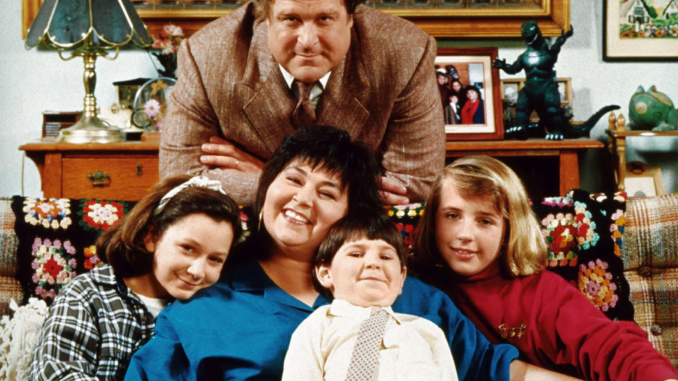
Roseanne was not just a funny sitcom—it was a groundbreaking show that addressed real-life issues that many other television programs shied away from. From mental health struggles to domestic violence, the series tackled topics that were often left unspoken on TV. In this article, we will explore the show’s fearless approach to serious social issues, and how it helped to open the door for future shows to explore similar topics.
Mental Health Representation
One of the earliest and most groundbreaking aspects of Roseanne was its treatment of mental health. In a time when mental illness was often stigmatized and rarely discussed in popular media, Roseanne tackled issues like depression and anxiety head-on. Roseanne, the character, was often portrayed as struggling with her own mental health issues, particularly in the later seasons of the show. These struggles were not glamorized or simplified—they were shown as a real part of her life, affecting her relationships and daily experiences.
The show’s realistic portrayal of Roseanne’s depression was groundbreaking because it showed that mental illness could be an everyday reality for many people. It also provided a form of representation for those who saw their own struggles reflected in Roseanne’s experiences.
Domestic Violence and Abuse
Another taboo subject that Roseanne addressed was domestic violence. In the show’s early seasons, Jackie, Roseanne’s younger sister, found herself in an abusive relationship. Unlike many other TV shows of the time that ignored or downplayed the severity of domestic abuse, Roseanne depicted the cycle of abuse in a realistic and unflinching way. Jackie’s journey toward recognizing the abuse and ultimately leaving her abusive partner was both heartbreaking and empowering.
The portrayal of domestic violence on Roseanne opened up important conversations about this difficult topic and highlighted the emotional and psychological effects of living in an abusive relationship. It helped raise awareness about a problem that many people were still too ashamed or afraid to talk about.
Body Image and Feminism
Roseanne herself was also a revolutionary character in terms of body image and feminism. In an era when most leading women on TV were thin and conventionally attractive, Roseanne was a larger, more realistically shaped woman. Her size was never the butt of the joke; instead, it was simply a part of who she was. The show often played with the idea that Roseanne was unapologetic about her body, refusing to conform to society’s beauty standards.
Moreover, Roseanne was a feminist character in the sense that she did not depend on a man to define her worth. She worked hard, stood up for herself, and refused to be controlled or diminished by traditional gender roles. Her character offered a much-needed role model for women in a time when feminism was just beginning to gain more mainstream attention.
